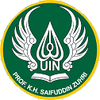The Role of Work Ethics in Mediating the Effect of Religiosity and Commitment on Work Quality A Case Study: Baitul Maal wat Tamwil in Brebes and Pubalingga Regencies
DOI:
https://doi.org/10.24090/wealth.v2i2.8083Keywords:
religiosity, commitment, work ethic, quality of work.Abstract
The research aims to determine the effect of religiosity and commitment on employee work ethic, then the effect of religiosity, commitment, and work ethic on work quality and the effect of religiosity on work quality through work ethic and the effect of commitment on work quality through the work ethic of Islamic Savings and Loans and Financing Cooperatives (KSPPS ) Baitul Maal wat Tamwil in the South Central Java Region with a focus on research locations in Brebes Regency and Purbalingga Regency. This research is a quantitative study with 56 BMT employees in Brebes and Purbalingga Regencies. The data collection uses a questionnaire tested for validity and reliability, while the data analysis uses SEM-PLS analysis using Smart-PLS 3.2.9 software. After analyzing the data, several conclusions were obtained: (1) religiosity and commitment have a positive effect on employee work ethic; (2) religiosity and work ethic have a positive effect on the quality of employee work; (3) commitment does not affect the quality of employee work; (4) work ethic is proven to have a role as a mediating variable on the effect of religiosity on work quality; (5) work ethic is proven to have a role as a mediating variable on the effect of commitment to the work quality.References
Ancok, D., & Suroso, F. N. (2008). Psikologi Islami cet VII. Yogyakarta: Pustaka Pelajar.
Arikunto, S. (2010). Metode Penelitian. Jakarta: Rineka Cipta.
Asifudin, A. J. (2004). Etos Kerja Islami. Muhammadiyah University Press.
Creswell, J. W., & Creswell, J. (2003). Research design. Sage Publications Thousand Oaks, CA.
Eliyana, A., Ma’arif, S., & Muzakki. (2019). Job satisfaction and organizational commitment effect in transformational leadership towards employee performance. European Research on Management and Business Economics, 25(3), 144–150. https://doi.org/10.1016/J.IEDEEN.2019.05.001
Findlay, P., Kalleberg, A. L., & Warhurst, C. (2013). The challenge of job quality. Human Relations, 66(4), 441–451.
Fitriani, A. (2016). Peran Religiusitas Dalam Meningkatkan Psycological Well Being. Al-AdYaN, XI(1).
Ghozali, I. (2014). SEM Metode Alternatif dengan menggunakan Partial Least Squares (PLS). Semarang: Badan Penerbit Universitas Diponegoro.
Kotler, P., & Keller, K. L. (2016). A framework for marketing management. MA Pearson.
Loan, L. (2020). The influence of organizational commitment on employees' job performance: The mediating role of job satisfaction. Management Science Letters, 10(14), 3307–3312.
Meyer, J. P., Allen, N. J., & Smith, C. A. (1993). Commitment to organizations and occupations: Extension and test of a three-component conceptualization. Journal of Applied Psychology, 78(4), 538.
Ndraha, T. (2009). Budaya Organisasi. Rineka Cipta.
Nurcholis, M. (1992). Islam Doktrin dan Peradaban. Jakarta: Paramadina.
Nurhayati, I., & Oktaviani, R. M. (2014). Pengaruh Komitmen Profesi Terhadap Turnover Intentions Dengan Kepuasan Kerja Sebagai Variabel Pemediasi (Studi pada Karyawan Kantor Konsultan Pajak di Semarang). Jurnal Bisnis Dan Ekonomi (JBE), 21(1), 83–98.
Petty, G. C. (2008). Vocational-Technical Education and the Occupational Work Ethic. Journal of Industrial Teacher Education, 32(3).
Rosally, C., & Christiawan, Y. . (2016). Pengaruh konflik peran, ketidakjelasan peran, dan komitmen organisasi terhadap kinerja auditor. Business Accounting Review, 3(2), 31–40.
Sari, L. P., Islamuddin, I., & Finthariasari, M. (2020). Pengaruh Etos Kerja dan Lingkungan Kerja terhadap Produktivitas Kerja Karyawan pada Industri Kerupuk As-Syifa Kota Bengkulu. (JEMS) Jurnal Entrepreneur Dan Manajemen Sains, 1(2), 216–221.
Sinamo, J. (2002). Etos Kerja Profesional di Era Digital Global. Jakarta: Institut Dharma Mahardika.
Soekidjan. (2009). Komitmen Organisasi. Seminar Sumber Daya Manusia.
Sugiyono. (2011). Metodologi penelitian kuantitatif kualitatif dan R&D. Alpabeta, Bandung.
Syah, T. A. (2021). Optimalisasi Kinerja Keuangan Perbankan Syariah: Perspektif Makro dan Mikro. Farha Purtaka.
Tasmara, T. (1994). Etos Kerja Pribadi Muslim. Dana Bhakti Wakaf.
Tjiptono, F. (2008). Service Management, Mewujudkan Layanan Prima. Penerbit Andi.
Utama, A. M. (2019). Tinjauan terhadap Kualitas Kerja Karyawan Berdasarkan Pengalaman Kerja dan Motivasi pada PT. Latexindo Toba Perkasa Kabupaten Deli Serdang. Journal of Education, Humaniora and Social Sciences (JEHSS), 2(2), 279–293. https://doi.org/10.34007/jehss.v2i2.104
Downloads
Published
How to Cite
Issue
Section
License
Copyright (c) 2023 Toufan Aldian Syah

This work is licensed under a Creative Commons Attribution 4.0 International License.





